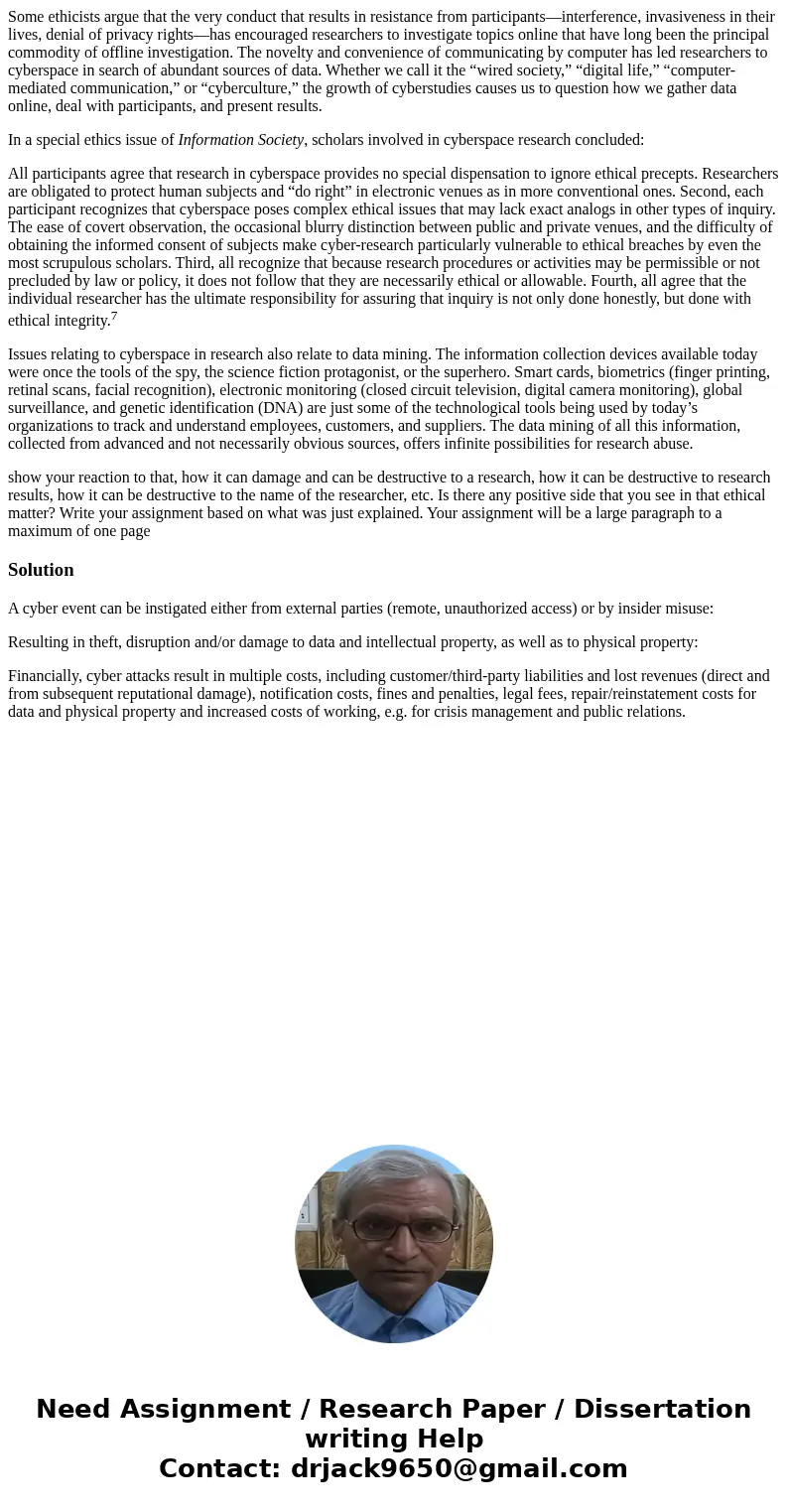Some ethicists argue that the very conduct that results in r
Some ethicists argue that the very conduct that results in resistance from participants—interference, invasiveness in their lives, denial of privacy rights—has encouraged researchers to investigate topics online that have long been the principal commodity of offline investigation. The novelty and convenience of communicating by computer has led researchers to cyberspace in search of abundant sources of data. Whether we call it the “wired society,” “digital life,” “computer-mediated communication,” or “cyberculture,” the growth of cyberstudies causes us to question how we gather data online, deal with participants, and present results.
In a special ethics issue of Information Society, scholars involved in cyberspace research concluded:
All participants agree that research in cyberspace provides no special dispensation to ignore ethical precepts. Researchers are obligated to protect human subjects and “do right” in electronic venues as in more conventional ones. Second, each participant recognizes that cyberspace poses complex ethical issues that may lack exact analogs in other types of inquiry. The ease of covert observation, the occasional blurry distinction between public and private venues, and the difficulty of obtaining the informed consent of subjects make cyber-research particularly vulnerable to ethical breaches by even the most scrupulous scholars. Third, all recognize that because research procedures or activities may be permissible or not precluded by law or policy, it does not follow that they are necessarily ethical or allowable. Fourth, all agree that the individual researcher has the ultimate responsibility for assuring that inquiry is not only done honestly, but done with ethical integrity.7
Issues relating to cyberspace in research also relate to data mining. The information collection devices available today were once the tools of the spy, the science fiction protagonist, or the superhero. Smart cards, biometrics (finger printing, retinal scans, facial recognition), electronic monitoring (closed circuit television, digital camera monitoring), global surveillance, and genetic identification (DNA) are just some of the technological tools being used by today’s organizations to track and understand employees, customers, and suppliers. The data mining of all this information, collected from advanced and not necessarily obvious sources, offers infinite possibilities for research abuse.
show your reaction to that, how it can damage and can be destructive to a research, how it can be destructive to research results, how it can be destructive to the name of the researcher, etc. Is there any positive side that you see in that ethical matter? Write your assignment based on what was just explained. Your assignment will be a large paragraph to a maximum of one page
Solution
A cyber event can be instigated either from external parties (remote, unauthorized access) or by insider misuse:
Resulting in theft, disruption and/or damage to data and intellectual property, as well as to physical property:
Financially, cyber attacks result in multiple costs, including customer/third-party liabilities and lost revenues (direct and from subsequent reputational damage), notification costs, fines and penalties, legal fees, repair/reinstatement costs for data and physical property and increased costs of working, e.g. for crisis management and public relations.

 Homework Sourse
Homework Sourse